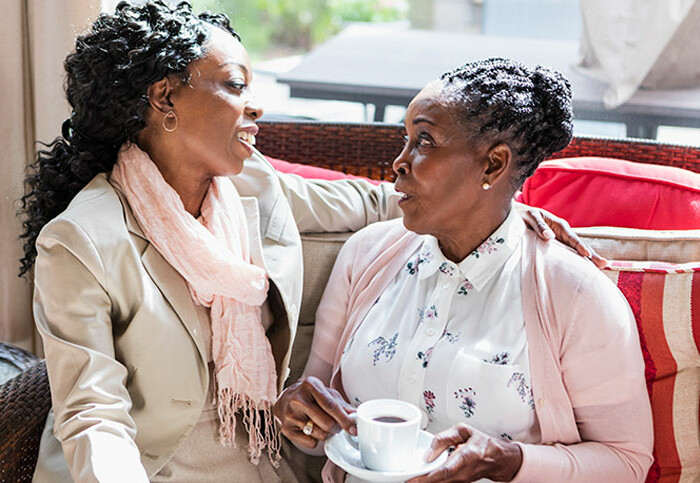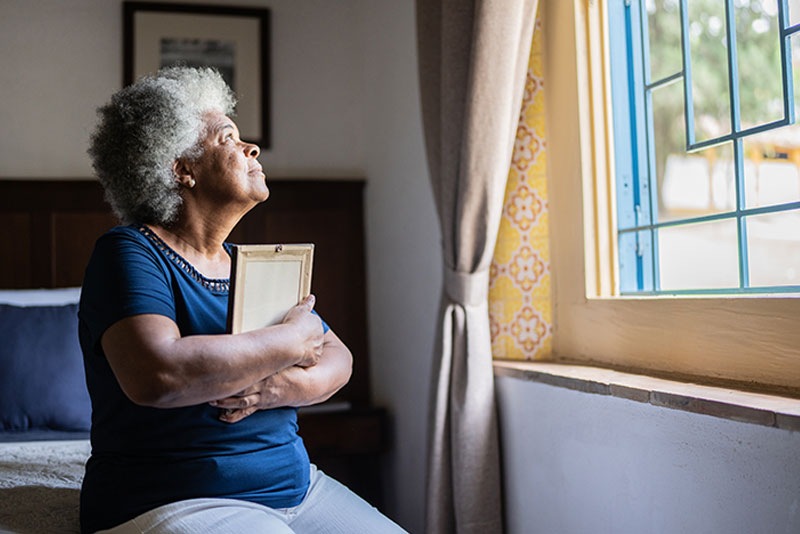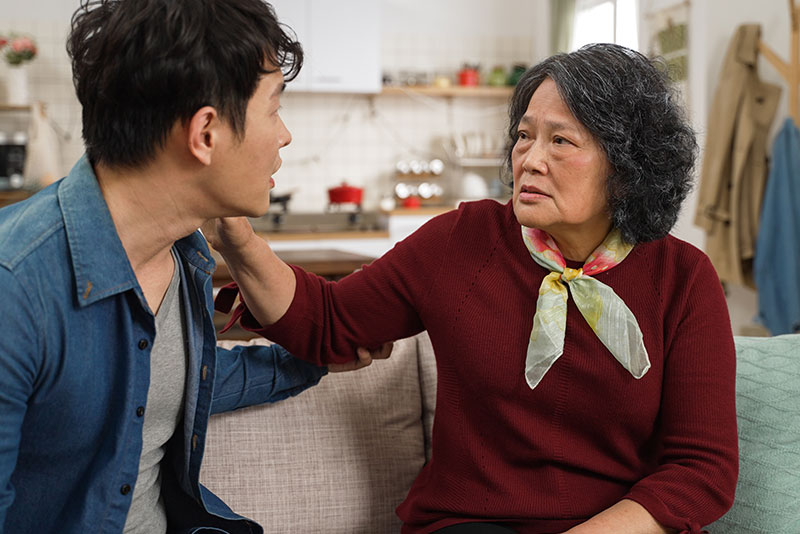Senior Health
Understanding Chemo Brain and Its Effects
Chemo brain can last for months or even years after treatment has ended.
Memory lapses, confusion, and difficulty concentrating—these symptoms could easily be attributed to Alzheimer’s, but for cancer survivors, there’s another likely culprit: chemotherapy. Referred to as chemotherapy induced cognitive impairment (CICI) or “chemo brain,” these effects can linger for months or even years after treatment concludes. It’s not exclusive to chemotherapy recipients, either; radiation, surgery, hormonal treatments, and even the cancer itself can contribute to cognitive challenges, complicating effective treatment.
Exploring the Complexity:
Dr. Kevin Liou from the Bendhaim Integrative Medicine Center at Memorial Sloan Kettering Cancer Center emphasizes that cancer-related cognitive impairment is a multifaceted issue with various contributing factors. This complexity means that chemo brain can manifest at any point during or after cancer treatment, presenting symptoms like difficulty multitasking, reading comprehension issues, word-finding … Read More »
4 Ways to Better Advocate for Your Older Loved Ones
Being a better advocate for your older loved ones begins with these four tactics.
“Unless someone like you cares a whole awful lot, nothing is going to get better. It’s not.” – Dr. Seuss, The Lorax
Serving as an advocate for your older loved ones is perhaps one of the greatest honors – and responsibilities – you’ll have as a family caregiver. It means fully comprehending their needs and wishes, and communicating them to those who can help to make sure they’re achieved.
Improving Health and Wellbeing for Seniors With Six Simple Steps
Improving health and wellbeing for seniors is easier with these tips.
Though New Year’s Day is still months away, who says resolutions should only be made at the start of the year? There is no time like the present to start a new habit or goal, especially when it comes to improving health and wellbeing for seniors.
We have six strategies you can implement today. Pick one to begin, or jump right into all of them to attain the greatest benefit:
Make an appointment for a physical. Rather than waiting for an injury or illness to call the doctor, a yearly check-up is a great way for seniors to stay on top of their health and potentially prevent issues before they occur.
Get physical. With the physician’s approval and recommendations, kick off a new exercise routine – together! Working out … Read More »
Walking Each Other Home: How to Ease End-of-Life Care
Learn how to ease end-of-life care with these tips.
Although the holiday season may be filled with joy, it can also spark feelings of loss and nostalgia for loved ones who are no longer with us. It’s also an incredibly poignant time for anyone who is caring for a loved one nearing the end of life. The ebbs and tides of life, as we know, do not always follow our schedules, routines, or desired outcomes. It becomes crucial to know how to ease end-of-life care to bring much-needed comfort during this trying time.
If you are in the midst of a season of providing end-of-life care, here are some thoughts to keep in mind that will help you best help the person in your care – as well as yourself.
Provide a calming environment. Ram Dass, author of … Read More »
The Strategy You Have to Try: Virtual Reality in Dementia Care
Virtual reality in dementia care can be highly effective in improving engagement, communication, and joy.
Imagine for a moment how it could feel to struggle with the cognitive challenges of dementia. The people who are closest to you are now unfamiliar. The words and phrases that would roll off your tongue without a second thought are now just beyond your grasp. In fact, the world as you once knew it has turned completely topsy-turvy, leaving you yearning for a recognizable foothold.
However, one of the kindnesses imparted by Alzheimer’s is the long-term memories that oftentimes remain intact long after short-term memories have disappeared. It’s why connecting older adults with Alzheimer’s to the past is often a remarkably effective way to engage them – through music, movies, photos, and reminiscing. Now we can add a high-tech tool to the … Read More »
Why You Need to Find a Geriatrician for the Best Senior Health Care
The best senior health care is provided by a geriatrician who is an expert in the unique needs of older adults.
If your child suddenly developed an illness, who would you call? It’s a no-brainer; many parents have the number on speed dial for the pediatrician they’ve carefully chosen to manage the medical care needs of their children. With their specialized training, working with a trusted pediatrician ensures the best possible care.
Likewise, selecting the best senior health care provider who focuses on specific health concerns of older adults is equally as important. However, sadly, the health care system as a whole has not placed a great focus on the unique health care needs of seniors. Dr. Carla Perissinotto, geriatrician and professor of medicine at the University of California, San Francisco, shares her alarm over this age-related health … Read More »
Tips for Communicating About Your COPD Diagnosis
Communicating about your COPD diagnosis can be easier with these steps
It began with your inner circle, those closest to you, and it has slowly been spreading outward to good friends and acquaintances. Communicating about your COPD diagnosis and knowing how to respond to the numerous questions that arise about it can be uncomfortable – for you personally, and also for those you’re speaking with as well.
Surprisingly, you might find that the biggest challenges come in speaking with your primary caregiving partner – the person who is closest to you personally. The caregiver/care receiver relationship can raise a number of emotions. The individual on the receiving end of care may feel insecure and self-conscious as a result of needing assistance, that may lead to feelings of anger and frustration just to name a few. The care provider … Read More »
How to Care for Someone With a Progressive Disease
These tips will guide you in how to care for someone with a progressive disease.
It might have been expected, or perhaps broadsided you without warning. Mom has just received the official diagnosis for a progressive disease that is likely to make independent life difficult. While there are a number of uncertainties, one thing is for sure: she is adamant about remaining at home – meaning you’ll have to learn how to care for someone with a progressive disease.
Welcome to the world of family caregiving! If you’re feeling a bit overwhelmed with what can be expected next, these recommendations will help.
Discover as much as you’re able to about the disease. The older adult’s doctor can provide you with resources and educational materials to help you know what to anticipate and to gain confidence in your caregiving role.
Prioritize … Read More »
4 Ways to Boost Resilience in Older Adults
Discover how to improve resilience in older adults in four simple steps.
Did you ever encounter someone so inspiring that it completely changed your viewpoint on life? It might lead you to pause and wonder what it is about that person that supplies them with the drive and strength to stand out from the crowd. This type of resilience in older adults is especially encouraging, showing us that whatever comes our way, at whatever age, life is beautiful, rich, and fulfilling.
At the Robert N. Butler Columbia Aging Center at Columbia University, research workers decided to examine this further with their “Exceeding Expectations” project. They followed 20 elderly New Yorkers from diversified backgrounds and cultures for a two-year time period. Here is what they learned about the resiliency of these extraordinary individuals.
They never let their obstacles define them. … Read More »
Help Seniors Live Longer and Better Through Finding a Sense of Purpose
Learn how to help seniors live longer and better with these tips.
What inspires you to get up out of bed every morning? The answer is different for every one of us, of course, but there’s one commonality: it could extend your life. Scientific studies are showing us that having a feeling of purpose is a key way to help seniors live longer and better, something evidenced in Japan – the country with the highest life expectancy on earth.
Remarkably, there is no word for our definition of “retirement” in the Japanese language. There is, instead, a concentration on maintaining purpose and meaning beyond a person’s working years and defining themselves according to their current passions and pastimes.
So just how can we help older adults – and ourselves – stay involved in what sparks interest and makes … Read More »

















